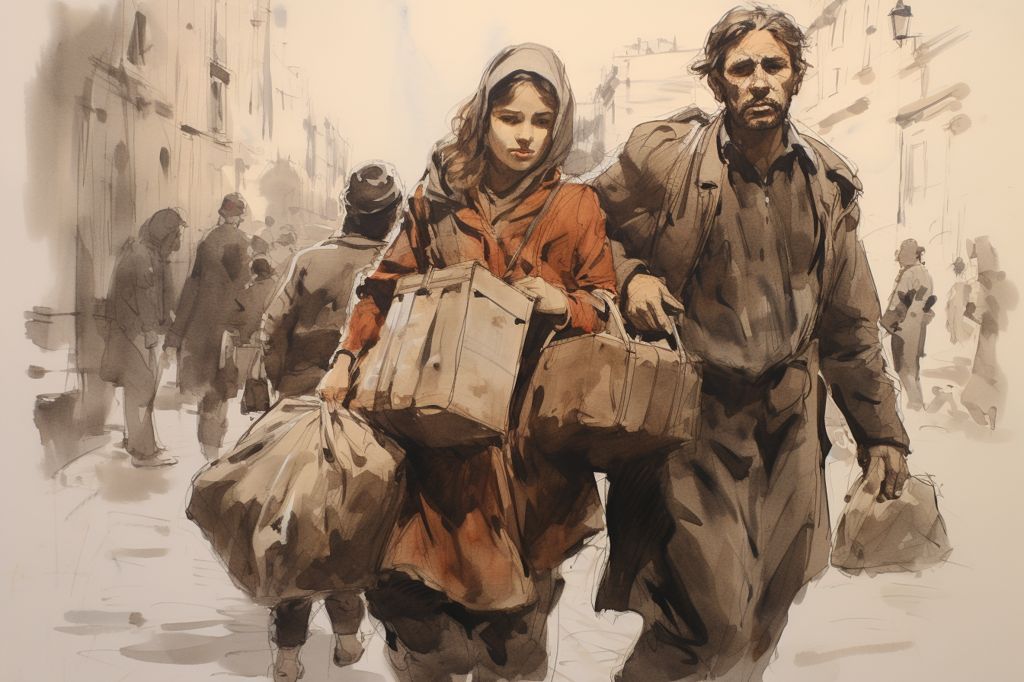Due to an outbreak of war between Sudan’s rival generals, Mohannad and his family were forced to flee their home in Khartoum and travel 2,000 kilometers to Cairo, Egypt. However, upon arrival, they discovered landlords were exploiting the influx of refugees by raising rents. Mohannad’s landlady demanded he triple his rent to keep his apartment, and when he refused, she resorted to cutting off electricity and water.
Influx of Sudanese Refugees in Cairo
According to reports, over 250,000 Sudanese refugees have arrived in Cairo, fleeing ceaseless airstrikes, street battles, looting, and sexual violence. Property owners in Cairo have taken advantage of this opportunity by raising rental prices, putting further strain on struggling refugees.
Economic Crisis and Housing Demand
Egypt is currently facing an ongoing economic crisis, with inflation reaching a record high of 36.8% in June and the pound losing half its value against the US dollar since early last year. This has significantly reduced purchasing power for both locals and new arrivals. Demand for housing has surged, particularly in areas like October 6, where Sudanese families try to find accommodation near the United Nations refugee agency (UNHCR) offices.
Stagnation of Local Market
Mohamed, an independent realtor, explained how the local market had stagnated but was revitalized as Sudanese refugees sought housing. Rent prices have soared well above market rates, with furnished apartments that were once 7,000-8,000 Egyptian pounds per month now costing up to 10,000 pounds or more if closer to the UNHCR offices.
Rise in Rent Prices
Rent prices in Heliopolis, a traditionally affluent neighborhood in eastern Cairo, have risen to 12,000 pounds due to the influx of Sudanese refugees. Ashraf, another Sudanese refugee, was able to rent an unfurnished apartment for his family of nine but reported that within a week, the same type of unit’s prices had risen from 3,500 to 5,000 pounds.
Struggles for Sudanese Refugees
Real estate market analyst Mahmud al-Lithy Nassef explained that the surge in prices across Cairo is not solely due to the arrival of Sudanese refugees. He states that as residents move from central Cairo to new satellite cities, they have turned their old units into revenue sources. However, this trend has left some Sudanese refugees with no housing options. Mohannad recounted meeting a Sudanese woman sleeping on the street with her children and luggage because her landlord raised the rent and she could not afford it.
As the housing market in Cairo fluctuates with demand and economic pressures, Sudanese refugees like Mohannad, Ashraf, and the woman sleeping on the street continue to struggle to find stability and security amidst displacement and hardship.












